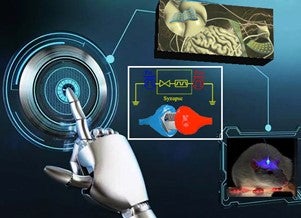
Personalized health care is a grand challenge in human society. Health care must shift from its current reactive and disease centric system to a personalized, predictive, preventative, and participatory model with a focus on disease prevention and health promotion.
As the world transforms into the era of the Internet of Things (IoT) and 5G wireless, technology innovation enables industry to offer a more individually tailored approach to health care with more successful health outcomes, higher quality, and low cost. However, empowering the utility of IoT enable technology in personalized health care is still a significant challenge by the shortage of effective wearable sensors and soft robotics to continuously provide real-time, personalized health data.
Flexible electronics and soft robotics play a vital role in realizing personalized health care for real-time monitoring, personalized diagnosis. To understand the design the flexible electronics with high selectivity and high sensitivity is yet to come.
By using state-of-the-art synthesis and in situ multimodal characterization techniques, plus machine learning, it is expected to design disruptive electronic, photonic and responsive materials for flexible electronics and soft robotics.
Representative sensing research publications:
- Nano Energy, 2020, 75,104938
- Angewandte Chemie International Edition, 2019,58, 4896–4900
- Nature, 2018, 561, 378-382
- ACS Nano, 2017, 11, 9112-9118
- ACS Nano, 2012, 6, 5010-5017

These examples are only several of our projects. There are many more types of opportunities and case studies. If you'd like to discuss partnering or sponsoring a research project in Materials Interface or would like more details: